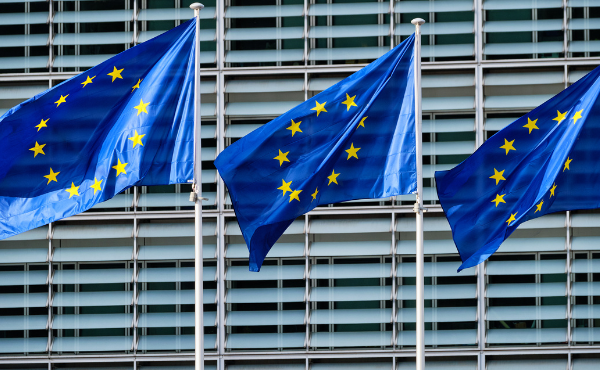
The ECGI blog is kindly supported by

Sustainable Corporate Governance and the Road to Stagnation
If the proposal is adopted in its current form, it will lead to a draconian bureaucracy, greater risk aversion, less dynamism and reduced competitiveness in European businesses.
It is said that the road to hell is paved with good intentions. The European Commission’s recent proposal for a Corporate Sustainability Due Diligence Directive is a case in point. While the proposal is full of good intentions it seems likely to do more harm than good by weakening European corporate governance and competitiveness.
A precursor initiative on Directors’ Duties and Sustainable Corporate Governance (the EY report) was fiercely criticised by nine Harvard professors, the Nordic countries, Business Europe, ECODA and many other individuals and organizations. In concluding a 3-day European Corporate Governance Institute (ECGI) seminar on the report, Professor Marco Becht (Université Libre de Bruxelles and ECGI) ‘highlighted the unanimous negative verdict on the EY Report by presenters and discussants, as well as a clear recommendation to the EU Commission to disregard the study’. He also noted the ‘unanimous agreement by leading corporate governance scholars that corporate governance is central to sustainability, but that most of the actions proposed in the EY Report are not those that are needed to deliver on the sustainable growth objectives. Worse, if implemented, they could do harm’.
Subsequently, the Commission’s Regulatory Scrutiny Board (RSB) rejected the European Commission’s draft proposal based on the EY Report not once but twice, stating that it was ‘not sufficiently clear about the need to regulate directors’ duties on top of due diligence requirements’ and that there was ‘[no] convincing evidence that EU businesses [...] do not already sufficiently reflect sustainability aspects or do not have sufficient incentives to do so’.
Nevertheless, the Commission has now inserted key elements of this proposal into a related proposal on supply chain due diligence, citing ‘political importance’ and the need for ‘urgency of action’. This is a clear violation of the EU’s Better Regulation principles, which mandate ‘evidence-based and transparent EU law-making based on the views of those that may be affected’.
Turning to the substance of the Proposal, these are some of its controversial elements:
- Mandatory net-zero climate plans shift responsibility for the Union’s ambitious climate goals to companies. This in effect is a tax through the back door of corporate law. Instead of using the first best instrument—a carbon tax—with the relevant political controls and the legitimacy of a political process, the Commission applies a planned economy approach, which will be less efficient, because economic incentives to reduce CO2 are lacking, and potentially more costly because it imposes the same goal (net zero in 2050) on all companies. Moreover, while almost all European companies worth their salt are already considering how to reduce their carbon footprint, there is a substantial risk that formal climate plans will lack the flexibility to adapt to changing economic circumstances and that changes to plans will be interpreted as a failure to comply with new-found director duties to engage in climate action. Economic planning has a miserable track record and is unlikely to work any better in this case. In fact, it appears to be obsolete from the very beginning because of the added energy security issues after the Russian invasion of Ukraine.
- Climate incentives for company directors. This ignores the well-known inefficiencies of complex incentive schemes. The alternative could be fixed pay for non-executive directors and long-term share incentives (restricted stock) for executive directors.
- Directors’ duties are to include climate action, human rights and the environment as well as the entire value chain and its short and long-term consequences. This will imply diffuse and uncertain liability for company directors, who are already responsible for the lawfulness of the company’s operations, so what we are seeing here is only meaningful as an expansion of director liability. The Commission appears to be unaware that increasing director liability may have a number of undesired side effects. For example, expert directors are more likely to exit, which can lead to lower firm value (Naaraayanan and Meisner, JFE 2021) and lower director quality in terms of experience and education (Marsulis, Shen and Shou, SSRN 2020). Increased liability may reduce corporate innovation (Guan et al., JCF 2021, Choi and Jung, MF 2021), increase accounting conservatism (Basu and Liang, JAR 2019) and lead to higher director pay (Melis and Rombi, CGIR 2021). Admittedly, greater liability (in the absence of insurance) may lead to more CSR (Choi and Jung, AEL 2021) and greater corporate liability (rather than director liability) may lead to less pollution (Akey and Appel, JF 2021). Moreover, earlier studies indicate that director liability may improve firm performance when ownership is dispersed (Crane and Koch, MS 2018), investor protection is low (Donelson and Yust, JLE 2014), and firm growth is high (Grinstein and Rossi, RF 2016). However, except for directors’ liability towards shareholders, it is doubtful whether liability (tort) deters undesired behaviour, while it seems to have negative side effects such as lower service levels, defensive practices and higher costs (Rooij and Brownlee, CHOC 2021).
- Increasing civil liability in sustainability matters is likely to lead to a more litigious Europe that resembles the United States more. Many would regard this as a step in the wrong direction.
- Sustainability regulators orchestrated by the Commission will be open to hearing NGO complaints and able to impose pecuniary sanctions on companies or to direct national courts to do so. The regulators may be the national financial standards authorities (FSAs). One point here is that the proposal seeks to substitute the court system of member states with a regulatory agency.
If the proposal is adopted in its current form, it will lead to a draconian bureaucracy, greater risk aversion, less dynamism and reduced competitiveness in European businesses. Since more European companies are likely to withdraw from less developed and emerging economies, the proposal is also likely to lead to deglobalization and welfare loss in poor countries
Instead, the EU should play by its own better regulation principles and drop the misguided directors’ duties aspect of the proposal while focusing on a manageable supply chain due diligence process that is limited to direct business partners. Now more than ever is the time for European unity and partnership with the business community rather than heavy-handed top-down regulation.
Steen Thomsen is the Novo Nordisk Foundation Professor of Enterprise Foundations at the Center for Corporate Governance, Copenhagen Business School
The ECGI does not, consistent with its constitutional purpose, have a view or opinion. If you wish to respond to this article, you can submit a blog article or 'letter to the editor' by clicking here.
An initial version of this article ‘Sustainable Corporate Governance and the Road to Stagnation’ by Steen Thomsen was published at the Oxford Business Law Blog, the University of Oxford on 14 April 2022.
This post is published as part of a new OBLB series on ‘The Corporate Sustainability Due Diligence Directive Proposal’.




